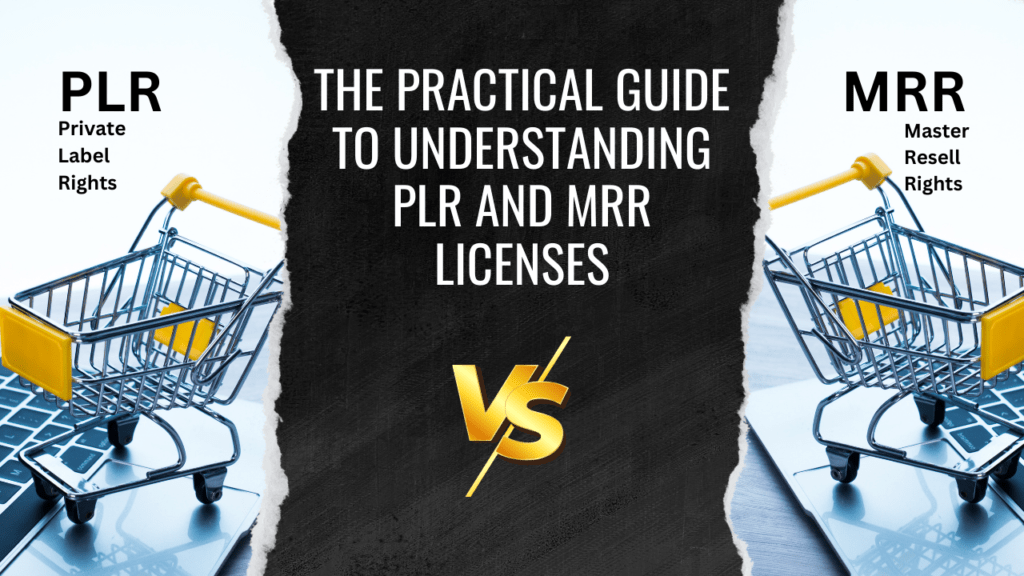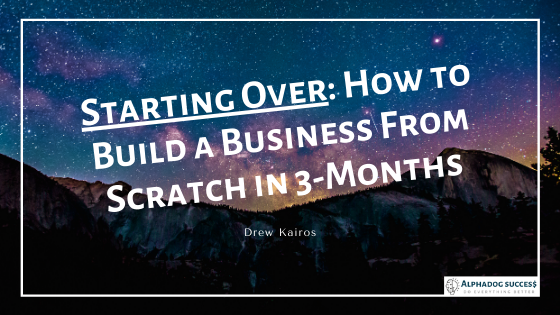The Practical Guide to Understanding PLR and MRR Licenses
Hey there, brilliant minds! Today, we’re diving into the practical world of PLR (Private Label Rights) and MRR (Master Resale Rights) content. Whether you’re a savvy marketer, a content creator, or just stepping into the vast digital landscape, understanding PLR licenses can be a total game-changer for your business. If you’ve ever found yourself stuck staring at a blank screen, PLR might just be the “shortcut” you’ve been looking for. Maybe you want to start your own business and have seen a lot of the Master Resell Rights (MRR) courses and products that promise a simple starting point. But before you dive into the PLR pool, it’s crucial to understand the different licenses involved and how each one can serve your unique needs. So, let’s break it down and make sense of these options, shall we? What Exactly is PLR? First off, PLR content is pre-created material that you can buy the rights to use, change, and, often, claim as your own. It’s like having a ghostwriter or a silent contributor who’s cool with you taking all the credit. Pretty sweet, right? The Types of PLR Licenses You must understand the different between all the PLR licenses. Pay attention to what is allowed at each level. This is key to using content effectively without stepping on any legal toes. Here’s the scoop on the most common types of licenses: Private Label Rights (PLR) What You Get: The freedom to alter, add to, and rebrand the content. You can even put your name on it as if you whipped it up yourself. What’s Not Allowed: The restrictions depend on the seller, but typically, you cannot resell the rights to someone else. Ideal For: Creating branded ebooks, courses, or articles for your blog that feel tailor made. Resell Rights (RR) What You Get: You can sell the product to others and keep 100% of the profits. You may not change the product. You cannot alter or edit the content. It’s a take-it-as-it-is option. Ideal For: Anyone looking to add new products to their digital shop without the hassle of creating something from scratch. Master Resell Rights (MRR) What You Get: Not only can you sell the product, but you can also pass along the resell rights to your customers. What’s Not Allowed: Typically, like RR, you cannot change the original content. Ideal For those who want to provide more value to their customers, allowing them to resell the product too. Benefits of Using PLR Why everyone should use PLR content? Here’s why it’s a potential savior for many entrepreneurs and content creators: Improved efficiency. Save a tremendous amount of time and energy. PLR content is ready to go–you just need to tweak it to fit your brand’s voice and style. Save yourself a little money and time. Hiring writers or content creators can be expensive. Creating everything yourself, from scratch, can take up a lot of your time. PLR offers a budget-friendly alternative that keeps your content pipeline flowing. With a little creativity, you can unlock infinite potential with unrestricted products. When you’re free to edit or transform the content, the possibilities are endless. Adapt it to create newsletters, social media posts, courses, or even marketing materials. Choosing the Right PLR License When shopping for PLR content, consider how you plan to use it. If customization and branding are important, go for full PLR. If you simply need products to resell, RR or MRR might be right up your alley. Always read the license terms—trust me, it’s crucial to know what you can and can’t do! Wrap-Up In the vast ocean of digital content, PLR is like having a speedboat. It gets you where you need to go faster, allowing you to focus on steering your business towards greater success. Whether you’re looking to save time, cut costs, or streamline content creation, PLR can propel you forward. Make sure you pay attention to what the license permits. So, go ahead, give PLR a shot and watch how it can transform your content strategy while freeing up your precious time. Let’s make magic happen with less stress and more creativity. Cheers to smart solutions and even smarter implementations!
The Practical Guide to Understanding PLR and MRR Licenses Read More »






